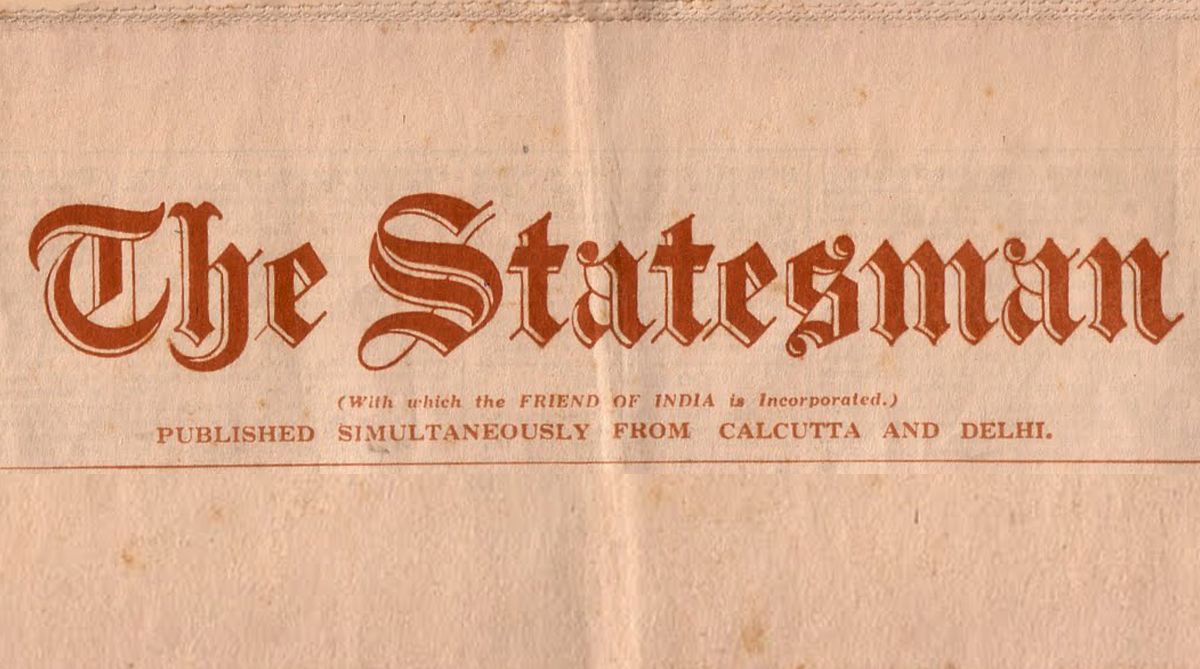A New Day, A New Dawn
There is a surprise for the readers. A special Poila Boishakh gift from none other than West Bengal chief minister Mamata Banerjee. Who has written a piece for this special edition.
On this day a century ago, these were some of the news items The Statesman readers got to read about India and the world.

OCCASIONAL NOTE
From the fact that the Kaiser has been allowed to escape on to Dutch soil it is to be feared that the armistice made no provision for bringing the arch-criminal to trial before an international tribunal. It is possible that such a tribunal may take the view that to punish those guilty of submarine atrocities, of cruelty to prisoners of war, or of defiance of international practice in occupied countries, is inequitable so long as the inspirer and abettor of those acts, who by a stroke of his pen could have prevented their recurrence, is at large. It remains to be seen what will be the attitude of the Dutch Government to their self-invited guest. His late Majesty appears, as was his wont, to have exhibited a taste for the good things of the earth when he selected his future residence. Arnhem is a beautiful town of the old Dutch type, and its situation on the Rhine will afford the exiled sovereign ample material for soliloquies of the type favoured by the Hohenzollerns. Its close proximity to the frontier, however, is suggestive of future trouble alike for Holland, the Powers, and Germany. Despite the strong influence of Prince Henry at Court it may be hoped that the Dutch people will insist that the ex-monarch is an undesirable immigrant and request him to move on.
ORPHAN BABIES
Advertisement
It has been represented to Government that owing to the influenza epidemic large number of babies have been orphaned. It is also reported that such cases are numerous in Poona, and that missions and other charitable associations were unable to deal with them for lack of funds and proper staff. In the course of a Government resolution on the subject it is stated that the only way in which Government can assist in such cases would be by establishing at Government expense crèches in which orphans can be looked after until they are reclaimed by their guardians or other relatives or handed over for care and maintenance to some orphanage or other similar institutions. His Excellency the Governor in Council is accordingly pleased to authorise collectors of districts to organise relief in the direction indicated above. Government have no objection to mission agency being employed in running crèches, but they desire that control should remain with the collectors.
CYCLONE AT MADRAS
Consequent on yesterday’s cyclone all the telegraph offices in Madras have been instructed to suspend the booking of ordinary telegrams for South India and to accept traffic for Bombay and Calcutta at sender’s risk. All lines are interrupted. The storm, which raged all last night commencing from 8 o’clock, caused much general destruction in the city. The uprooting of trees throughout the city, more particularly in the southern and western areas, have rendered many of the thoroughfares impassable. Falling trees have destroyed telegraphic, telephonic, and tramway wires in several parts of the city. Railway communication has been obstructed in several places, trees having fallen across the railway lines. A good deal of damage was caused on Mount Road, where an electric light standard was twisted out of shape.
THE CEASE FIRE
A wireless French official communiqué says:- Marshal Foch has telegraphed to the Commanders-in-Chief: Allied troops will not until further order go beyond the line reached at eleven o’clock on the morning of November 11th. The German official armistice was signed at five o’clock this morning and comes into operation at eleven o’clock on the morning of November 11th. Delay for evacuation has been prolonged for twenty-four hours for the left bank of the Thine. Modification of the text compared with that brought by Helldorp will be transmitted. The above apparently refers to a condition of the armistice, the terms of which have not yet been issued.
JOY THROUGHOUT INDIA
The peace celebrations on the Ridge at Simla today were attended by an extraordinarily large assemblage. Troops were drawn up on one side of the Ridge, while the opposite side was occupied by the officers of Army Headquarters, the Sergeants on the Staff, Civil officers of Government, and a large body of spectators. The Commander-in-Chief, attended by Major-General T.E. Scott, arrived at 11-45 and inspected the troops, and shortly before noon the Viceroy, attended by his personal staff, arrived and walked to a dais where he was received by the Commander-in-Chief, Sir W. Vincent, Sir G. Barnes, Sir G. Lowndes, Sir E. Maclagan, and Col. Burlton, Deputy Commissioner. The Viceroy mounted the dais and delivered a speech which was frequently loudly applauded. The ceremony concluded with the singing of the National Anthem in which everyone joined.
Advertisement